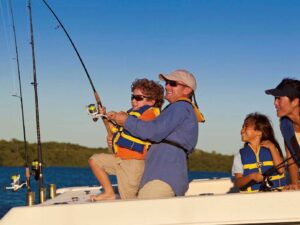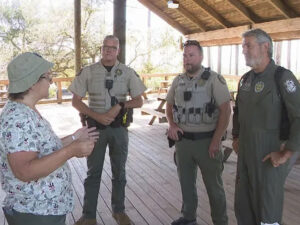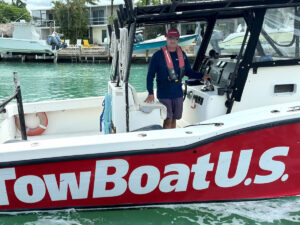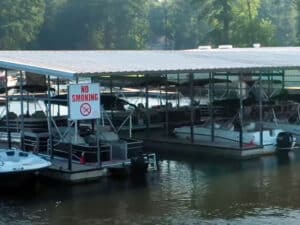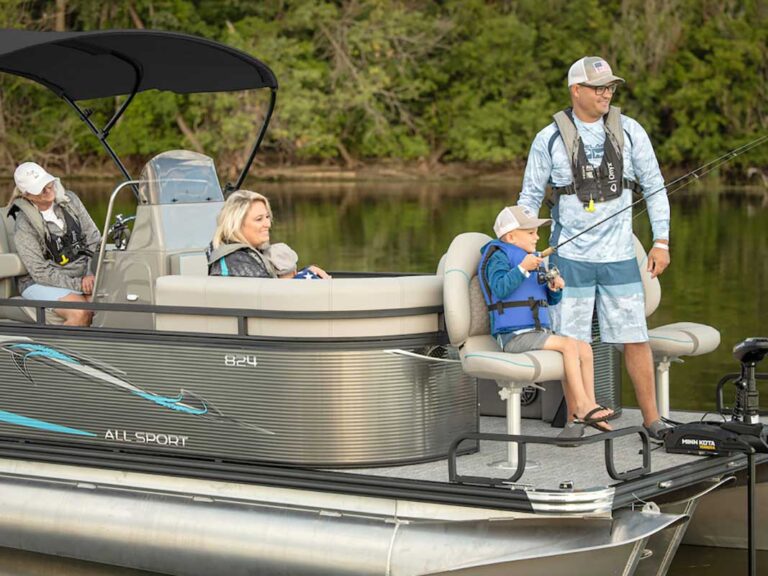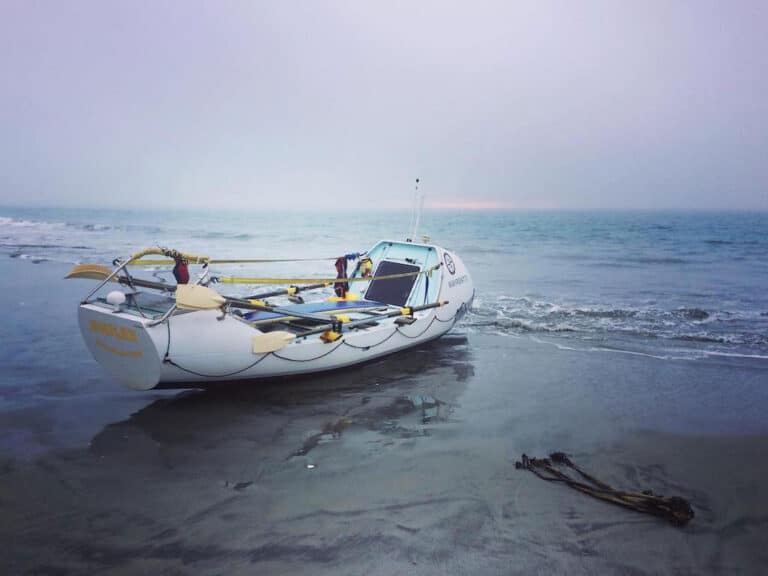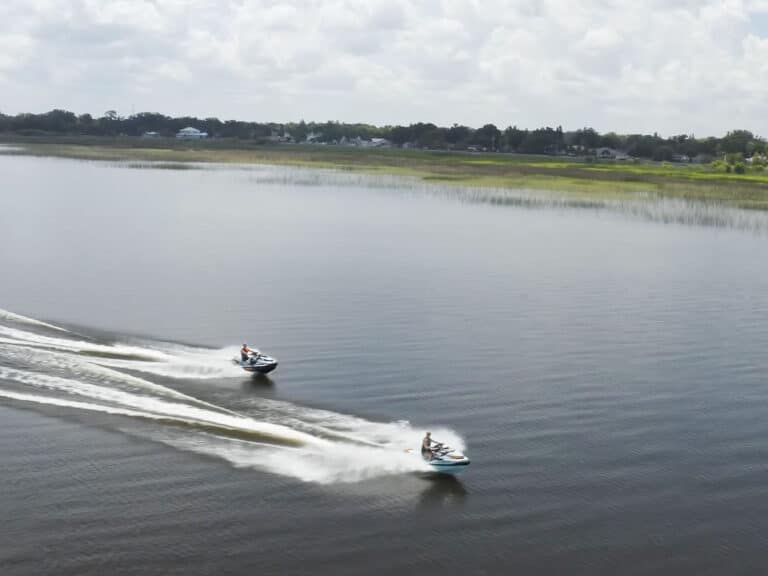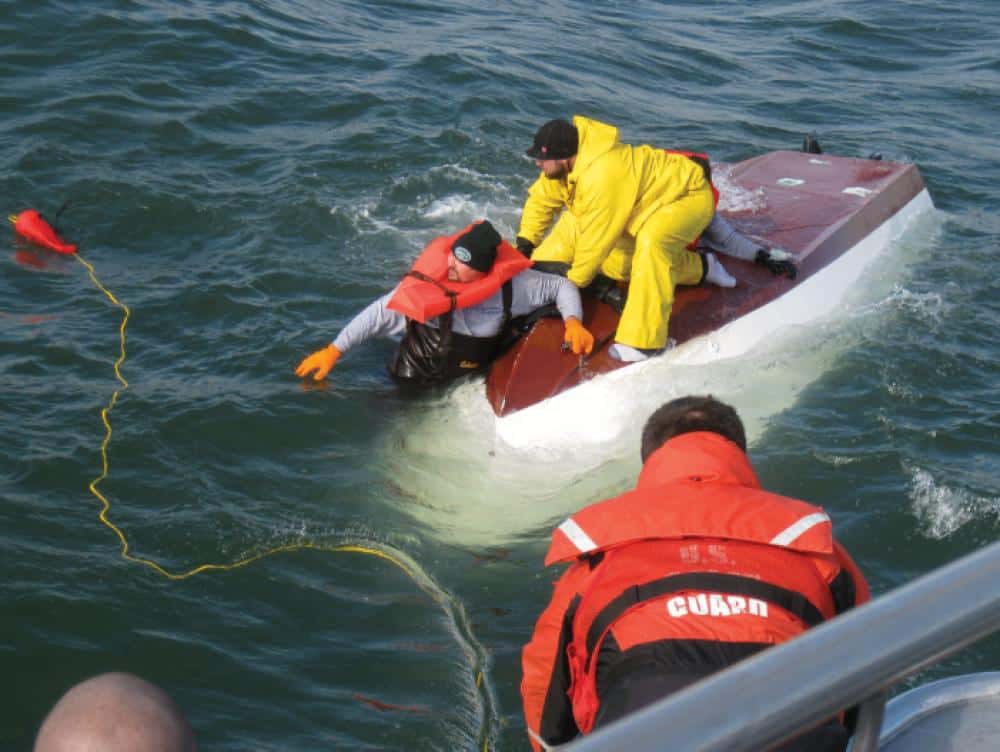
The weather report predicted nothing but good things offshore when you headed outside the inlet. Unfortunately, Mother Nature doesn’t like predictions. As the swells kick up to uncomfortable levels, a following sea suddenly causes your boat to stuff and roll, and in a flash you and your passengers find yourselves in the drink with the boat’s keel pointed to the sky.
What now?
- The most important thing you can do is stay with the boat. This exponentially increases your chances of being rescued. “If someone’s looking just for you from a C-130 or a helicopter, it’s like looking for a basketball floating in the water,” says Christopher Todd, public affairs officer for the U.S. Coast Guard Auxiliary. The inverted hull makes a much larger target.
- Todd also recommends retrieving as many supplies as possible, such as flares, distress signals and extra flotation devices. Find anything that floats and tether it to the boat to create a bigger target, or release it into the water to create a debris field, which also helps spotters.
- Try to climb on top of the hull to reduce exposure. Water steals body heat 25 times faster than air does. Also, huddle together to pool warmth and stave off hypothermia.
- Keeping an easily accessed ditch bag on board with a registered emergency position-indicating radio beacon (EPIRB) can be a lifesaver. So can a positive attitude. “If you believe you’re going to be rescued and don’t panic,” Todd says, “that can be a huge factor.”
Read more on what to do if your boat capsizes here.
The U.S. Coast Guard is asking all boat owners and operators to help reduce fatalities, injuries, property damage, and associated healthcare costs related to recreational boating accidents by taking personal responsibility for their own safety and the safety of their passengers. Essential steps include: wearing a life jacket at all times and requiring passengers to do the same; never boating under the influence (BUI); successfully completing a boating safety course; and getting a Vessel Safety Check (VSC) annually from local U.S. Coast Guard Auxiliary, United States Power Squadrons(r), or your state boating agency’s Vessel Examiners. The U.S. Coast Guard reminds all boaters to “Boat Responsibly!” For more tips on boating safety, visit www.uscgboating.org.

